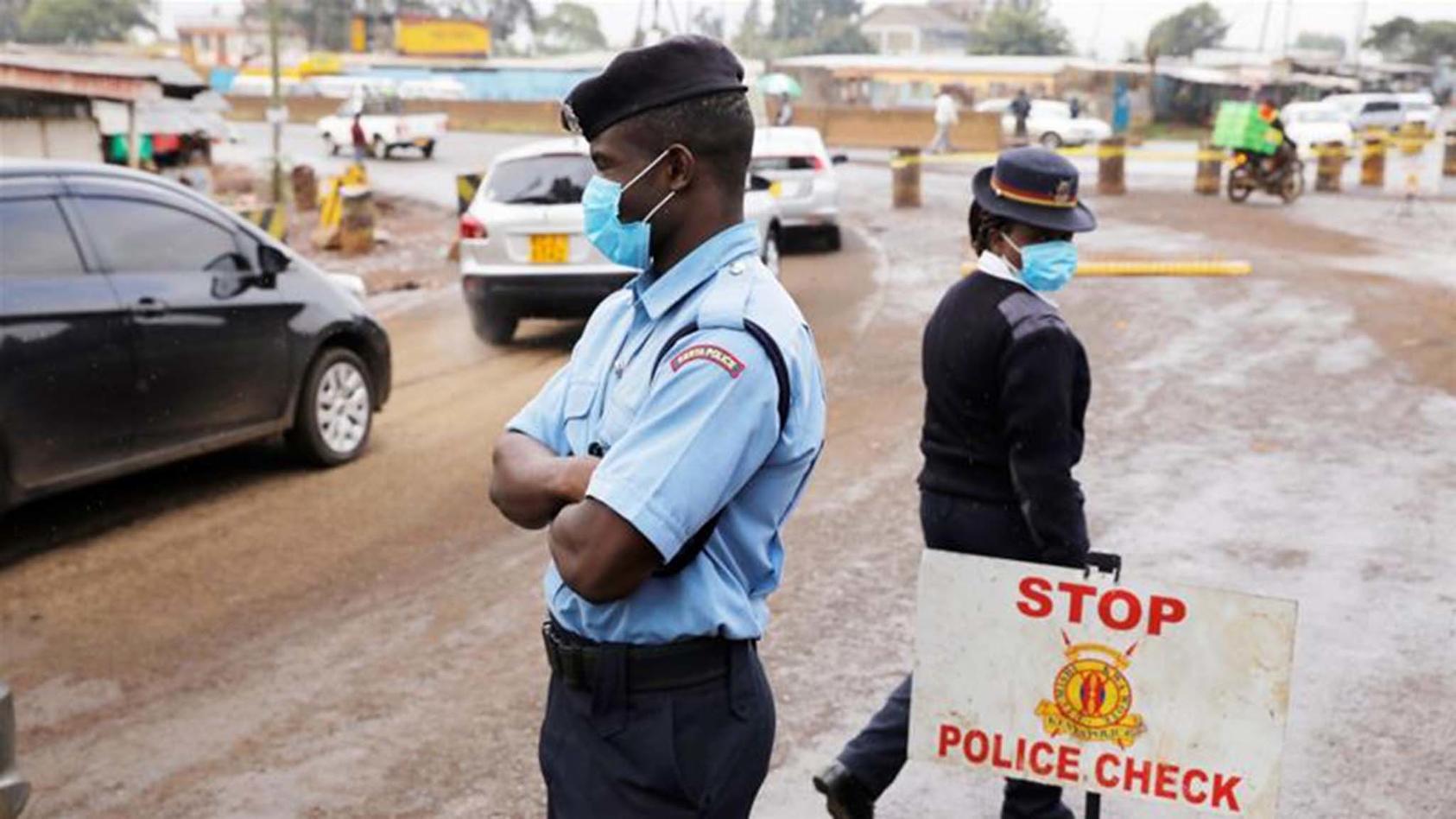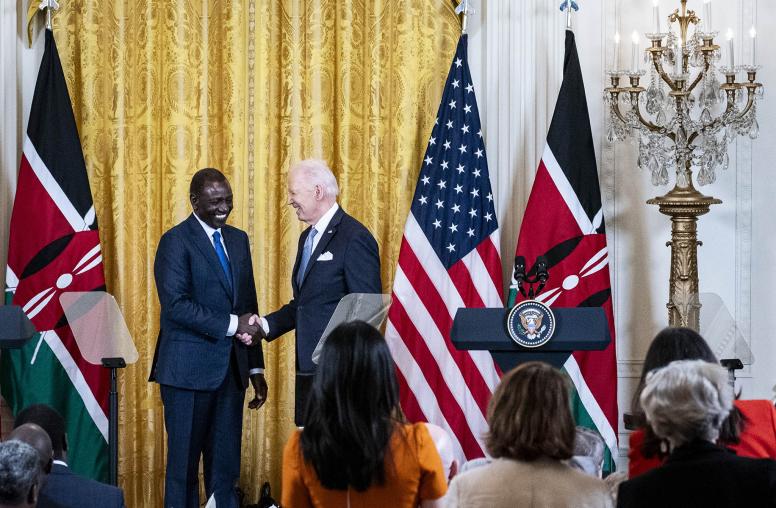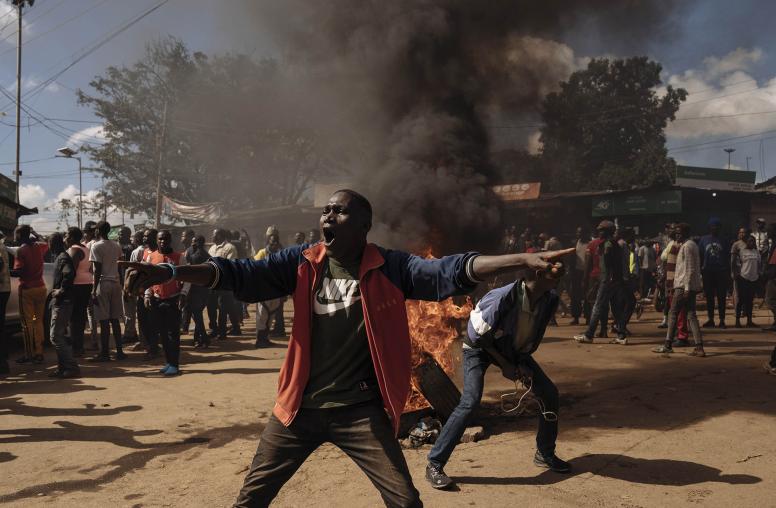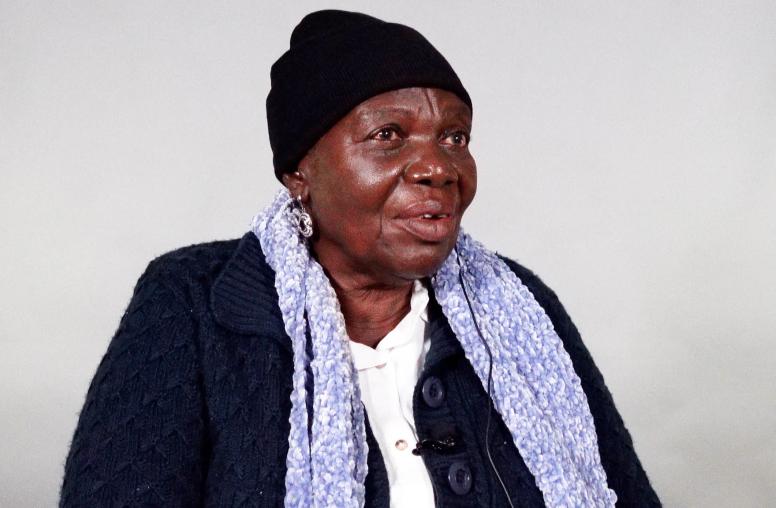From Nigeria to the United States and beyond, the added pressures of COVID-19 have pushed community-police relations to the breaking point as police have found themselves thrust to the frontlines of the coronavirus response. This issue has been particularly acute in Kenya, where police were tasked with new responsibilities without proper equipment or information. The resulting confusion has been a catalyst for increased tensions between the police and everyday Kenyans — including reports of violent and heavy-handed crackdowns from police.

In an effort to get a more complete picture of Kenya’s COVID response, I spoke with a handful of police officers in Kenya to understand their perspective. Kenya’s police have been tasked with enforcing COVID-related curfews and other restrictions, such as mask wearing. The police officers I spoke with all expressed their fear of coronavirus and the risk associated with being at the frontlines of a pandemic.
Managing COVID Fears
One police officer explained that he has been trained to deal with volatile situations and fight terrorism — but nothing has prepared him for the “invisible threat” of the pandemic. “It was so horrible, so, so frightening,” said the officer. “When you wake up in the morning every day and you go to work and you're not sure if you can come home in the evening without you being infected.”
The fear that police officers have about the virus is exacerbated by lack of information. The police officers I spoke with confirmed they were thrown into the deep end of policing during the pandemic without being provided adequate information.
Apart from not having enough information on COVID-19, the respondents also reported not having clear operational directives from their superiors. Without effective management directives, individual officers have been placed in difficult positions where enforcing the law could create counter-productive outcomes and place people at more risk of contracting COVID. One officer described a dilemma he faced while managing people who were arrested for breaking COVID-19 rules: “I encountered [a situation where] we had to arrest some persons … we had to place them in the same cell without maybe knowing … if they are COVID positive or negative.”
Many of the police officers interviewed also reported that they lacked personal protective equipment (PPE). According to one officer, they were provided with one facemask each when the pandemic started. Another officer explained that some police units have had to depend on “well-wishers,” that is, members of the public and private organizations, to provide them much-needed PPE. He admitted that this practice has a direct link to corruption: accepting such gifts from the public compromises the police and places them in a difficult situation to enforce laws if a well-wisher is found committing a crime.
A Setback for Community Relations
Along with the risk of corruption, the pandemic has seen a wave of reports of police heavy-handedness — and in some cases outright violence against civilians — in enforcing COVID-19 regulations in Kenya. Yvonne Akoth, a human rights activist in Nairobi, said that implementation of the previous lockdown was rife with “gross human rights violations” that led to outcry from the citizens of Kenya and harmed efforts to combat COVID. “Police brutality isn’t just unlawful; it is also counterproductive in fighting the spread of the virus,” said Otsieno Namwaya, senior Africa researcher at Human Rights Watch.
This influx of police brutality reports also represents a setback in efforts to repair the relationship between police and communities. Prior to the outbreak of COVID-19, the government of Kenya had tried to increase community engagement to improve the image of the police and to build a mutually beneficial relationship with the public. The police provided communities with water, organized sporting activities with the youths of the communities and held regular meetings with community elders to discuss security concerns. In return, the community members have worked with them to address security issues.
Since the pandemic started, however, restricted movement has significantly impacted this dynamic as both police and citizens have been unable to carry out tasks that helped sustain the relationship. While some police officers claimed that the alleged harassment and brutality has been exaggerated and over-reported by the media, many officers interviewed admitted and acknowledged the existence of police brutality and the harm it has caused in the community’s faith and trust in the police: “When we started enforcing the measures as given by the presidential directives, it started on a bad note … Citizens were harassed by some police officers, some took advantage of the situation to be brutal,” said one officer.
More optimistically, Rehema Zaid Obuyi, who works for Integrated Initiatives for Community Empowerment in Kenya, said she hopes that after offending police officers were made to take responsibility for their actions, others would be deterred from engaging in similar abuse. The Independent Policing Oversight Authority and other human rights agencies in Kenya are currently on high alert to monitor any human rights violations by police officers.
A Possible Way Forward — For the Pandemic and Beyond
Should police be tasked with the very important work of responding to the pandemic? There are several schools of thought on this issue.
Some people, including police leaders, think that it may not be the best use of police resources, as core police duties remain. Instead, the pandemic response should bring together various sectors of society, including the police, to work in concert. This requires strong, trusting relationships between civil society and the security sector — something that has proven difficult in the past. But programs like USIP's Women Preventing Violent Extremism in the Horn and Sahel aim to bridge the divide between civilians, particularly women, and the security sector to create a cooperative environment that boosts trust and improves security through peaceful exchanges.
Another school of thought suggests that the police are exceptionally well-positioned for this work because they have the core mandate to protect life — and enforcing COVID-19 rules falls within that mandate. They also argue that enforcing COVID-19 policies is a core function of the police because this task may require the use force on people who disobey the rules.
Compliance with COVID-19 policies is not solely dependent on the use of force. People obey the law when they are meaningfully engaged by the authorities. They are more likely to adhere to laws and regulations when they are treated fairly and respectfully and given a voice. Now more than ever, the police must increase and improve their community engagement efforts in a way that builds real, lasting relationships with the communities they serve. Kenya’s police have to rebuild their image, and this can only be achieved through attitudinal and behavior change.
The opinions of a few police officers do not represent the view of the entire law enforcement sector in Kenya. However, this calls for further research into what policing a pandemic means for law enforcement officers, as well as how to ensure that not only are they protected, but they have the right skill set to deal with the ongoing pandemic and any other unforeseen emergencies that may arise in the future.
Ultimately, the response to the pandemic should not be limited to health workers or police officers; civil society should also be engaged. Especially in a country like Kenya, the COVID-19 response should involve multiple formal and informal stakeholders including teachers, local administrative officers and religious leaders. Adequate and consistent information should be shared in multiple languages and through various channels and local actors should be engaged in spreading factual information at the community level. This will significantly help people understand why certain measures are in place and what everyone needs to do to stay safe.



